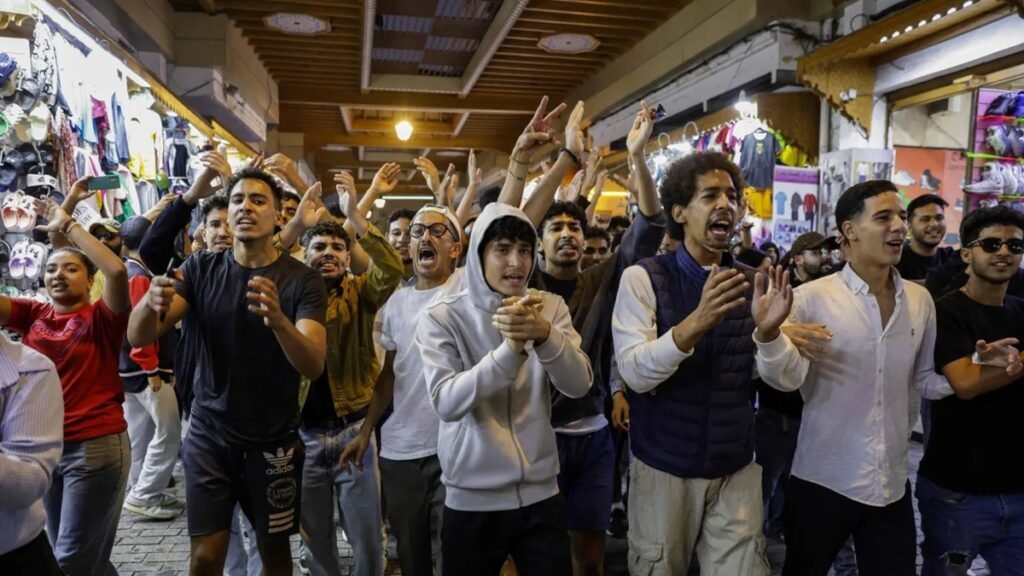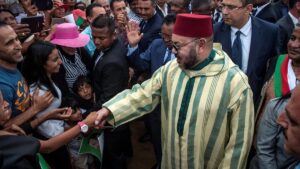Generation Z: From digital spaces to public spaces

Dr. Abdullah Boussouf (Historian, Secretary General of the Council of the Moroccan Community Abroad)
We all know what happened on September 28 and 29, when a group of young people calling themselves "Generation Z" took to the streets, demanding social and cultural reforms. These included fighting corruption and improving key public services, such as health and education.
We all know how public forces intervene to maintain public order and protect citizens' property...in the face of protests that are not authorized by the public authorities and without a legal entity responsible for organizing them.
Today, we don't need to blame each other, throw the ball at each other, or trade accusations and shortcomings. What we need more is to listen to each other as one large family, without leaving any margins for others.
First, because the demands of “Generation Z” are not new. It is enough to look at the dozens of articles, videos, and podcasts that discuss, on a daily basis, the issues of education, health, and the fight against corruption. The evidence is that the past two years have witnessed protests and sit-ins by medical students, the suspension of studies, and long-term strikes in the education sector. This means that the protests of September 28 and 29, 2025, did not carry anything new in content, i.e., health, education, and corruption. Rather, what is new is the “incubator group” for these legitimate social and cultural demands, which are enshrined as constitutional rights. The new group embracing these demands calls itself “Generation Z,” a new wave of global protest movements. We can add them to previous youth movements, whether in Russia, China, Europe in general in 1968, or in America and the “Love and Peace” movement at Woodstock in 1969. Then the “Millennials” took over the torch, quickly passing it to “Generation Z,” who initially took up concerns about the environment and climate, and then moved on to health and justice circles, a year and a half after the COVID-19 era. These movements are characterized by being decentralized and without a leader or chieftain.
While the first movements originated and grew in Europe and America, the Generation Z movements spread from Europe and America to Nepal, Kenya, Indonesia, Sri Lanka, Madagascar, Peru, Paraguay, and Morocco.
Generation Z has been the subject of numerous studies and research on mental, psychological, and social issues. One of the findings is that Generation Z has been affected by a series of powerful events in a short period of time. It has experienced the 2009 economic crisis, the repercussions of climate change, the COVID-19 years and their repercussions on psychological, social, and cultural health, and has experienced numerous wars and price hikes on everything.
I believe that to understand what happened on September 28 and 29 in several Moroccan cities, we must review the findings of these studies, particularly on the behavioral levels of "Generation Z" and the serious psychological and mental symptoms they suffer from, such as anxiety, stress, and depression.
That's why many scholars have described it as the "anxious generation," but what's really interesting are the observations we experience every day without seeing or caring about them.
These studies have identified specific behavioral traits for Generation Z, including introversion, loneliness, and the creation of a new language and communication mechanism: the mobile phone.
This group, for example, spends a very long time in "dark" chat rooms, as well as in electronic gaming rooms like "PUBG" and "Free Fire," where the language of violence, murder, and weapons prevails. Here, we can pose some valid questions: How can a group that lives in those dark rooms alone for hours on end care about the health and education sectors or combating corruption? How can some members of this group, which speaks a particular language and writes in a particular way, make powerful media statements using correct language? And how was the path paved for "Generation Z" to move from websites and digital spaces to public sites?
In his book, "Generation Anxiety," American psychiatrist Dr. Jonathan Haidt discusses the effects of stress, depression, and prolonged sadness that characterize Generation Z, and argues that the mobile phone plays a powerful role in causing isolation and depression.
Mobile phones have also enabled Generation Z to access information quickly and abundantly, facilitating their organization and rapid action.
But the discussion will move to another level when it comes to the role of the family in shaping the awareness of “Generation Z.” The discussion suggests that the family contributes to the transmission of feelings of despair and messages of lack of confidence in the future and fear to their children from “Generation Z.” This argument may prevail relatively, as the age group of “Generation Z” does not allow them to be responsible for the affairs of the home and its financial management. Rather, most of them still receive pocket money from their parents, and the majority of them are not allowed to obtain a job or work experience, which means the absence of a life experience that would enable them to compare and interact.
But they live in families that have been scorched by high prices, or have suffered from bitter health conditions, and from the high costs of private education for their children, following the collapse of public education, and from the poor quality of education despite all the costs and expenses.
In addition, most educational systems, in both sectors, suffer from a weak dual convergence between training and employment. This situation forces “Generation Z” to live in an atmosphere fraught with fear of the future, anxiety, and depression. This pushes this same generation to withdraw from society and enter into relationships with their peers in chat rooms, or to engage in electronic gaming competitions, revolving around who can kill the most, who has the most lethal weapon, and so on.
But often, this withdrawal from society and family is tactical, waiting for something on the horizon, so they are ready for anything and any consequences, and in colloquial language, “they have nothing to lose,” because, and this is very dangerous, they see themselves as a heavy burden on the family, which has become living in great embarrassment and greater insomnia about the future of their children. This explains the reaction of these young people and their behavior when riding in police cars, for example, as they did not care about the consequences of going to or spending the night at the police station, but rather the “Free Fire” game continued even in reality, waiting for a new round of burning cars, looting shops, and assaulting people’s property.
However, there are several indicators pointing to the exploitation of "rights for false purposes," including the use of digital space to insert numerous videos and events that took place in Nepal and Madagascar, for example, and attribute them to Morocco. Furthermore, issuing strong, organized statements while wearing clothing bearing slogans of demands requires a great deal of effort and time, and indicates the presence of a preparation team and the fingerprints of a mastermind. Furthermore, the movement of some traitors abroad, with the aim of inciting Moroccans abroad, is another indication of the intent and premeditation to harm Morocco's image abroad.
We believe that the choice to manipulate or exploit legitimate demands such as health and education by young people at this particular time is a game whose true intentions are questionable. As everyone knows, the health, education, and governance sectors are strategic and vital, and cannot be resolved with the stroke of a pen or the press of a button. Rather, they are structured, sequenced, and financed, and are subject to several religious, social, and cultural considerations.
Now, everyone acknowledges the imbalances in public policies related to health and education, and the need to step up the fight against corruption and link accountability to responsibility—a point on which no one disagrees. However, the desire to elevate this nation to the highest ranks, and to enhance Morocco's image abroad, remains paramount. Therefore, the "Generation Z" protests should be viewed as a cry of youth carrying messages of fear and anger about a future with uncertain guarantees.
These messages must be responded to with reassuring messages through youth-specific policies, aimed at bringing them out of dark chat rooms and integrating them into settings befitting Morocco's rising youth. They must also be met with the immediate and effective implementation of strong public policies in the areas of health care and education within the framework of the social state.
This is not just talk, given the existence of dozens of halls and youth centers without patrons and without programs that meet the expectations of young people.
This is not a matter of emotional response, given the presence of dozens of studios and platforms open to young people to responsibly express their expectations in broad daylight, right in front of us all. The goal is to bring them out of the dark chat rooms and encourage them to engage in social media, including unions, parties, and associations, to express their opinions within frameworks recognized by the country's law and constitution.
This is no passing joke, given the presence of summer camps in the mountains and beaches dedicated to inculcating national and moral values, primarily volunteer work. Incidentally, digital spaces remain the usual and preferred place for terrorist groups to hunt down victims, brainwash youth, domesticate them, and train them remotely, known as "lone wolves."
Young people, all young people, must be brought out of dark rooms and electronic games, and transferred from the virtual world to reality with all its challenges and complexities, and all its pains and hopes.






